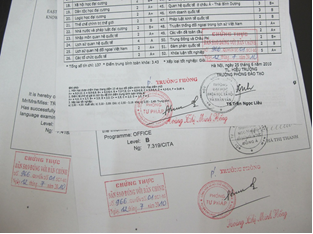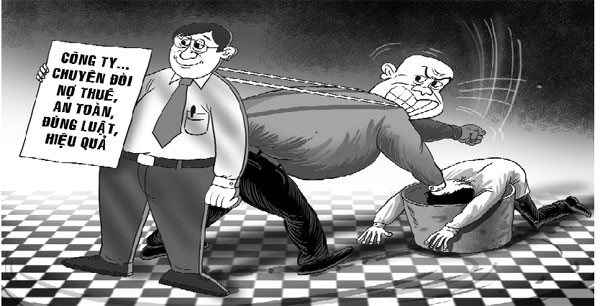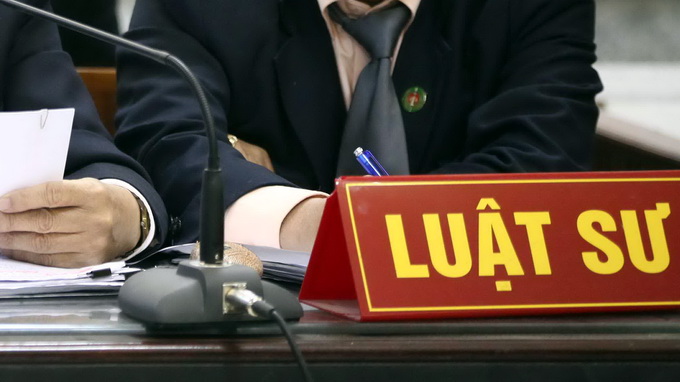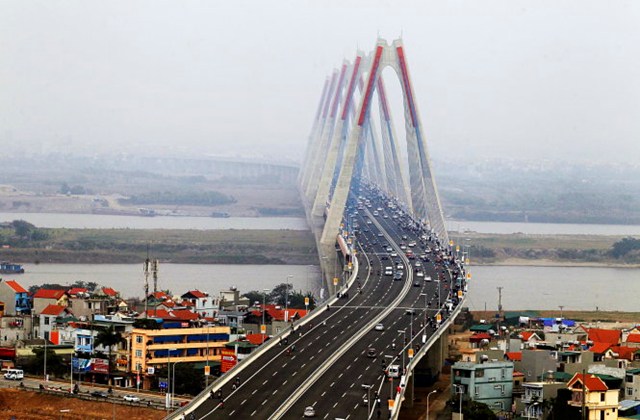The Law on Administrative Procedures was approved by the 13th National Assembly of Vietnam at its 10th session on November 25, 2015 (Law on Administrative Procedures 2015) and effective from July 01, 2016.
With significant amendments and supplements compared to the Law on Administrative Procedures 2010, after nearly two years of enforcement, the Law on Administrative Procedures 2015 of Vietnam and the accompanying implementation guidelines have provided a legal basis for the process of accepting and resolving administrative cases, ensuring the rights and obligations of the involved parties. They meet the requirements of judicial reform, contribute to safeguarding justice, protecting human rights, citizens' rights, defending the socialist regime, protecting the interests of the state, and protecting the legitimate rights and interests of organizations and individuals. They ensure that litigation in court becomes a true pillar of justice for the people, actively contributing to the protection and restoration of the legitimate rights and interests of organizations and individuals that have been violated.
However, alongside these achievements, the implementation of certain provisions of the Law on Administrative Procedures 2015 has shown some limitations, especially in resolving administrative cases involving administrative decisions and actions of the Chairperson of the People's Committee or the People's Committee, which are subject to complaints. To be specific:
1. Provisions of Article 60 of the Law on Administrative Procedures 2015
According to Clause 7 Article 60 of the Law on Administrative Procedures 2015, representatives are specified as follows: “Cadres and civil servants of courts, procuracies, inspectorates and judgment enforcement agencies; or civil servants, officers and non-commissioned officers in public security forces may not act as representatives in administrative procedures, unless they participate in the capacity as representatives of their agencies or as at-law representatives.”.
However, Point c Clause 2 Article 61 of the Law on Administrative Procedures 2015 stipulates that the persons may act as defense counsels of the lawful rights and interests of involved parties when requested by such involved parties and registered by the court as defense counsels of the lawful rights and interests of involved parties: Vietnamese citizens who have the full civil act capacity and legal knowledge, have not yet been convicted or had been convicted but have had their criminal records remitted, are not subject to any administrative handling measure and are not cadres or civil servants of courts, procuracies, inspectorates or judgment enforcement agencies or civil servants, officers or noncommissioned officers in public security forces.
It can be seen that this provision is not suitable for the reality as it restricts the participation in administrative litigation of officials from the inspectorate agencies under the provincial and district People's Committees. In practice, inspectors are advisory bodies of the People's Committees and the Chairperson of the People's Committee in handling complaints and denunciations. According to Article 5 of the Law on Inspection 2010 of Vietnam, functions of state inspection agencies is that State inspection agencies shall, within the ambit of their tasks and powers, perform and assist competent state agencies in performing the state management of inspection work, settlement of complaints and denunciations and prevention and combat of corruption; and inspect and settle complaints and denunciations and prevent and combat corruption under law. Thus, during the advisory process, helping the People's Committees and the Chairperson of the People's Committee in resolving complaints and denunciations, they have a clear understanding of the matters related to the administrative case. Therefore, in my personal opinion, it is necessary to amend and supplement the provisions regarding the participation of officials from the inspectorate agencies of the provincial and district People's Committees in administrative litigation, with the role of protecting the legitimate rights and interests of the parties involved (the People's Committees, the Chairperson of the People's Committee) in relation to the challenged administrative decisions and actions.
2. Authorized representatives
According to Clause 3 Article 60 of the Law on Administrative Procedures 2015:
“3. Authorized representatives in administrative procedures must have the full civil act capacity and be authorized in writing by involved parties or their at-law representatives.
In case a household, cooperative group or another organization without the legal person status participates in administrative procedures, its members may authorize one member among them or another person to act as their representative to participate in administrative procedures.
In case a defendant is an agency or organization or its head, he/she may only authorize his/her deputy to represent him/her in administrative procedures. The authorized person shall participate in the settlement of the whole case and fully exercise the rights and perform the obligations of defendants specified in this Law.”
The defendant in an administrative case is usually the head of an agency or organization, and they are only authorized to delegate their deputy to participate in the litigation, without authorizing the subordinate specialized agency. It can be seen that this provision is quite rigid and affects the clarification of certain relevant circumstances of the case during questioning, evidence examination, and the court proceedings. In reality, before making any administrative decisions or taking administrative actions, the Chairperson of the People's Committee and the People's Committee always receive direct advice from the subordinate specialized agency regarding the legal basis, options, forecasting, or assessment of consequences if the administrative action is taken or not, or if the administrative decision is issued or not etc.
Therefore, it is necessary to supplement the provision to authorize the People's Committee and the Chairperson of the People's Committee - the defendant - to delegate the relevant specialized agency to provide direct advice in the specific field being challenged, as they have the highest level of expertise and understanding of the legal provisions when providing advice on administrative decisions and actions.
3. Cases of return of lawsuit petitions
According to Clause 1 Article 123 of the Law on Administrative Procedures 2015, the judge shall return a lawsuit petition in the following cases:
a/ The plaintiff has no right to institute a lawsuit;
b/ The plaintiff does not have full administrative procedure act capacity;
c/ The plaintiff files the lawsuit petition with the court when failing to satisfy one of the law-prescribed conditions for instituting lawsuits.
d/ The matter has been settled with a legally effective court judgment or ruling;
dd/ The matter does not fall under the jurisdiction of the court;
e/ The plaintiff chooses to have the case or matter settled according to complaint settlement procedures in the case specified in Article 33 of this Law;
g/ The lawsuit petition does not fully contain the contents specified in Clause 1, Article 118 of this Law and is neither modified nor supplemented by the plaintiff under Article 122 of this Law;
h/ The plaintiff fails to produce a receipt of legal cost advance to the court upon the expiration of the notified time limit specified in Clause 1, Article 125 of this Law, unless the plaintiff is exempted from legal cost advance, is not required to pay legal cost advance or has a plausible reason for such failure.
Also according to Clause 1 Article 116 of the Law on Administrative Procedures 2015, the statute of limitations for lawsuit institution means a time limit within which agencies, organizations or individuals may institute lawsuits to request courts settling administrative cases in order to protect their infringed lawful rights and interests. Upon the expiration of that time limit, they no longer have the right to institute lawsuits. The statute of limitations for lawsuit institution in each specific case is stipulated in Clauses 2 and 3 Article 116 of this Law.
However, not in all cases can the plaintiff be aware that their right to file a lawsuit has expired, resulting in not submitting the lawsuit. Therefore, in order to limit the filing of lawsuits against administrative decisions and actions of the People's Committee and the Chairperson of the People's Committee after the statutory time limit has expired, it is recommended to supplement provisions regarding the return of the lawsuit when the time limit for filing a lawsuit has expired, as stipulated in Clause 1 Article 123 of the Law.
Jurist Vu Nguyen
Source: The Ministry of Justice
- Key word:
- Law on Administrative Procedures 2015
 Article table of contents
Article table of contents









.Medium.png)
.Medium.png)
.Medium.png)
.Medium.png)
